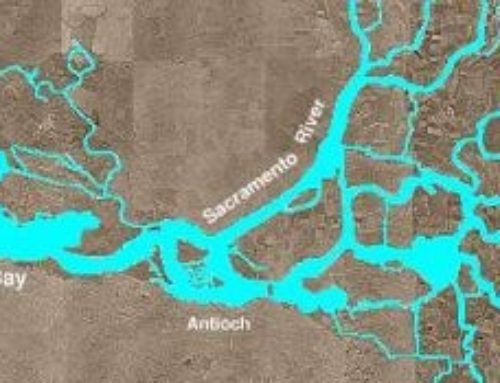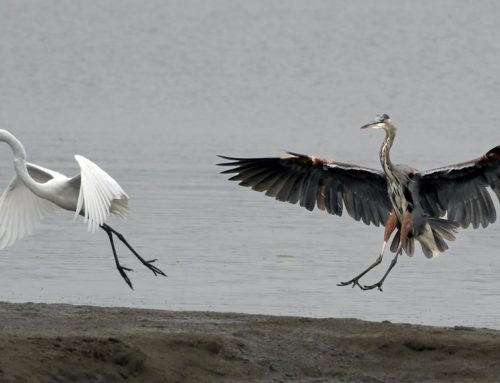-
Wouldn’t it be great if we didn’t have to pass laws in order for us to make logicial, smart choices about how to best yuse and maintain our resources? Well, in lieu of that approach, the Senate has been stepping up to the plate with a host of water restoration bills to legislate responsible oversight of our estuaries, rivers and streasm. Hey, look, a San Francisco Bay Restoration Act is included.
Senate Moves Forward to Restore America’s Great Waters: Committee Approves Series of Bills to Restore Water Ecosystems that Protect People, Wildlife, and the Economy
By America’s Great Waters Coalition
Members of America’s Great Waters Coalition are commending the Senate Environment and Public Works Committee for passing a suite of restoration bills that will authorize needed funding, and bolster coordination and oversight to advance restoration plans for seven Great Waters across the country. The Committee also passed a reauthorization of the National Estuary Program to benefit smaller estuarine systems. The Committee passed the following bills with bipartisan support:
· H.R. 4715 The Clean Estuaries Act
· S. 2739 Puget Sound Recovery Act
· S. 3073 Great Lakes Ecosystem Restoration Act
· S. 1816 Chesapeake Bay Clean Water and Ecosystem Restoration Act
· S. 3025 Columbia River Basin Restoration Act
· S. 1311 Gulf of Mexico Restoration and Protection Act
· S. 3119 Long Island Sound Restoration and Stewardship Act
· S. 3539 San Francisco Bay Restoration Act
“These bills acknowledge the importance of America’s Great Waters, our nation’s crown jewels,” said Malia Hale, director of Restoration and Water Resources programs for National Wildlife Federation and co-chair of the America’s Great Waters Coalition. “Today’s Senate action is a critical step to lifting all boats and restoring the waters that millions of people depend on for their health, jobs and way of life—this effort will be vital in addressing the impacts of global warming.”
Each of the bills authorized investments for ongoing restoration projects—a key step in obtaining needed restoration dollars at a time when legislators must justify any additional appropriations. These investments represent money well spent, as they will ensure clean, clear streams for all Americans and a strong return on investment; in the Great Lakes, for example, a recent economic study determined that every one dollar invested in restoration yields two dollars in benefits.
“We applaud the leadership of Senators Boxer, Cardin, and the Senate Committee on Environment and Public Works for recognizing the economic and environmental values of America’s Great Waters,” said Theresa Pierno, executive vice president of the National Parks Conservation Association and co-chair of the America’s Great Waters Coalition. “From the Great Lakes to the Chesapeake Bay to the Puget Sound, these waters shape our daily lives, drive local economies and enhance our national parks. The passage of these very important bills confirms Congress’ commitment to protecting and restoring our national treasures for future generations.”
These bills will help all levels of government manage major threats to water quality, such as non-point source pollution and invasive species. Some bills address major gaps in the Clean Water Act that have not been remedied nearly 40 years after it was signed into law. Declining water quality threatens hundreds of threatened and endangered species—such as the Brown Pelican in the Gulf of Mexico and the Orca in the Puget Sound—that these Great Waters support.
“The underwater oil geyser in the Gulf of Mexico is reminding the world every day how fragile our water resources and the local economies that depend on them really are,” said Roy Hoagland, vice president of Environmental Protection and Restoration for the Chesapeake Bay Foundation and a co-chair of the America’s Great Waters Coalition. “Senator Cardin and the Environment and Public Works Committee have showed great leadership in moving to protect our other Great Waters before it is too late. Congress should pass these bills and get them to the President’s desk without delay.”
Additional quotations from Great Waters Steering Committee Members:
“Puget Sound’s future is brighter because of this legislation,” said Kathy Fletcher, founder and executive director of People For Puget Sound. “After many years of planning and studying the Sound, this bill will spur the actions necessary to actually restore its health.”
“We applaud Senator Gillibrand along with Senators Lieberman, Schumer and Dodd for leading the charge to reauthorize and streamline the Long Island Sound Restoration and Stewardship Acts,” said Brian Moore, legislative director of the National Audubon Society. “This important legislation will ensure that desperately needed water quality improvements, habitat protection initiatives, and enhanced public access opportunities will continue so that future generations will be able to enjoy a cleaner, healthier Long Island Sound.”
“Healthy estuaries are a cornerstone of our nation’s economic prosperity and ecological sustainability,” said Jeff Benoit, president of Restore America’s Estuaries. “Now, more than ever before, we must dedicate ourselves to restoring the habitats that define these extraordinary places. We applaud the work of the Subcommittee in recognizing the importance of our nation’s estuaries and moving these vital pieces of legislation toward passage.”
“We need our Great Water bodies now more than ever,” said Adrienne Esposito, executive director of Citizens Campaign for the Environment. “Our fishing and shell fishing industries are facing historic and unprecedented hardships including potential federal regulations to stop lobstering in all waters south of Cape Cod, destructive algae blooms including red tide and brown tide, and Blue Fin Tuna are in even greater danger from the tragedy in the Gulf. Restoration efforts of our waterways cannot only protect our environment but for so many who live around these waters it also gives us hope for the future by providing for a more sustainable economy and livelihoods.”
“Restoration of the Great Lakes—the world’s largest surface freshwater system—cannot occur without the national coordinated support and commitment of Congress,” said Joel Brammeier, president and CEO of the Alliance for the Great Lakes.
The America’s Great Waters Coalition is an alliance of more than 50 national, regional, state, and local organizations working to protect, preserve, and restore America’s Great Waters, which include, the Chesapeake Bay, Coastal Louisiana, the Everglades, the Great Lakes, Gulf of Maine, Lake Champlain, Long Island Sound, Mississippi River, Puget Sound, San Francisco Bay.






